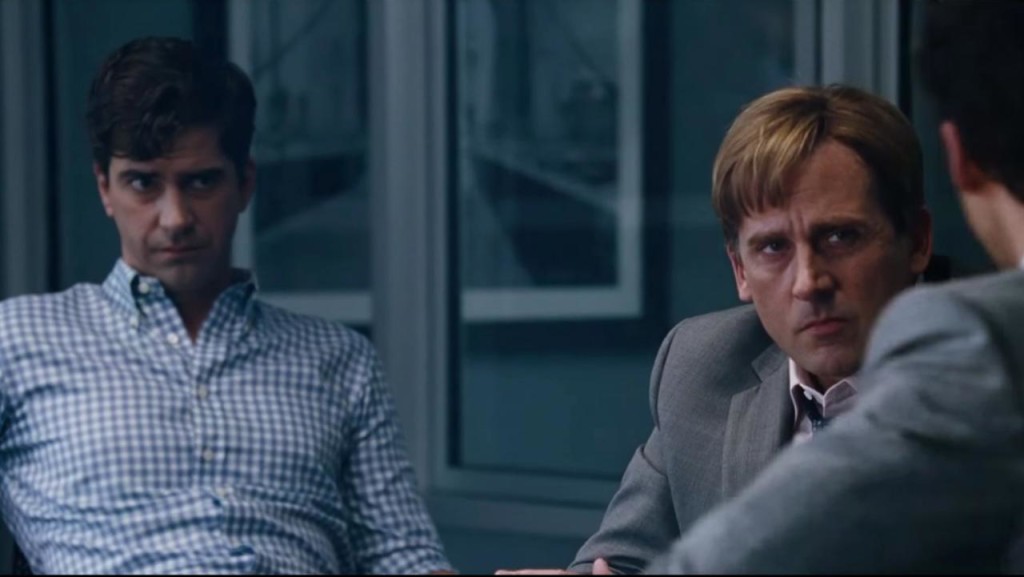
It’s history. Now we all know that the subprime mortgage scam blew up in 2007 and brought global banking to its knees by September 2008. The supremely entertaining The Big Short takes us back to before the financial collapse, when only a few quirky smarty pants saw it coming. Director Adam McKay personalizes the crisis into an irreverent character driven drama with both whodunit and ticking bomb elements. It all adds up to an exciting, funny and anger-provoking experience.
The Big Short follows the parallel stories of the not-so-merry few who discovered the worthlessness of securities comprised of bad subprime loans. There’s a San Jose doctor-turned-fund manager (Christian Bale), a renegade Wall Street hedge fund manager (Steve Carell) and a couple of boy wonder investors in Boulder, Colorado. It’s a very unlikely bunch of prospective heroes. Bale’s doctor is so socially impervious that he seems to belong somewhere on the autism spectrum. Carell’s trader attends anger management group therapy, which is not helping him a damn bit. And the Boulder kids – well this IS their first rodeo.
The real star here is Adam McKay, whose previous work has been in low-brow comedies, most notably the Ron Burgundy movies. Remember, this is the story of guys in front of their computers figuring out the current and future values of other people’s home mortgages. McKay has turned this into an edge-of-your-seat thriller. That is remarkable.
McKay’s first challenge is helping us understand all the financial gobbledygook. McKay immediately breaks the Fourth Wall, with an opportunistic Wall Street banker (Ryan Gosling) opening the movie by speaking directly to the camera and explaining how home mortgages are securitized – and it turns out that we can understand it, after all. Throughout the film, McKay keeps interrupting the action with very funny cameos, so unexpected personalities can explain various financial instruments. I’m not going to reveal them, because much of the fun is the delightful surprise. But I will say that no one has ever explained something complicated with more clarity than a pop star, an economist and a crowd in a casino when they combine to illuminate us about the “synthetic CDO”.
As cynical and iconoclastic as they are, none of our heroes can imagine the breadth of the corruption and the scale of the impending financial meltdown. As Carell’s character digs deeper, he unearths the incentives for the bankers, insurers, rating agencies and mortgage retailers to lie and cheat and defraud – all built into the system. Carell’s face is filled with a combination of disgust and terror as he connects the dots. The Big Short opens with the Mark Twain quote: “It ain’t what you don’t know that gets you into trouble. It’s what you know for sure that just ain’t so.” No truer words…
Carell and Bale are brilliant in The Big Short; both performances are awards-worthy. Gosling, Brad Pitt and Melissa Leo are all also excellent, as is Adepero Oduye (12 Years a Slave). I especially loved Jeremy Strong’s performance as Carell’s hyper intense right hand man. Strong has a particular gift for being memorable in historical dramas: Lincoln, Zero Dark Thirty, Selma and as Lee Harvey Oswald in the overlooked Parkland.
Now we know that these guys were right when everyone else – including ALL the figures of authority – were saying that they were wrong. It’s an amazing story to watch.
